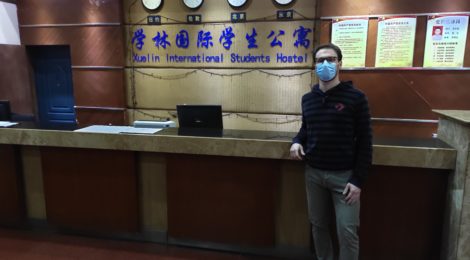
LIFE OF ITALIAN STUDENTS IN CHINA DURING THE OUTBREAK OF NOVEL CORONAVIRUS
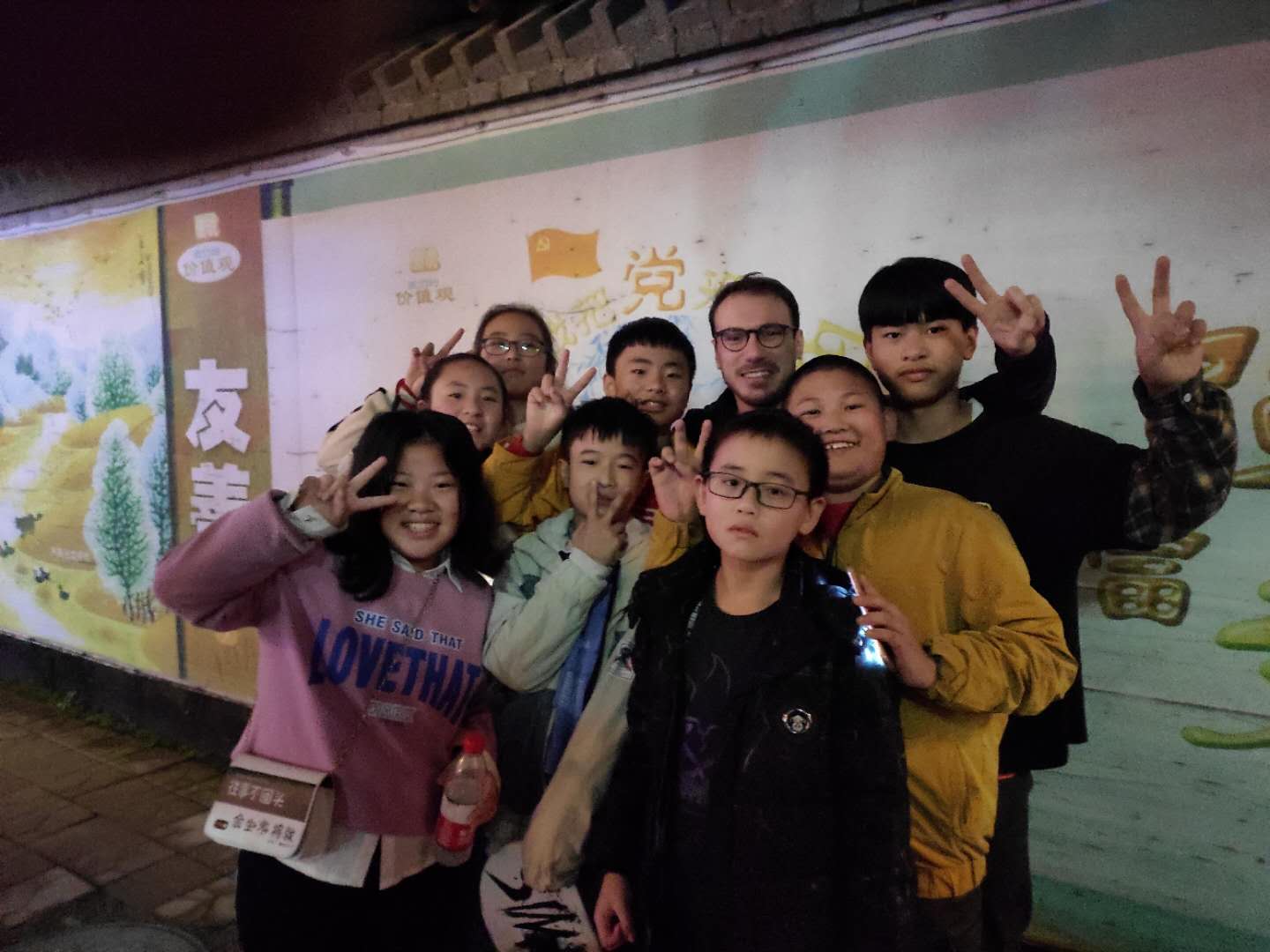
The student Dario Lovato in China
Dear readers, for this issue of the Chongqing Stories, we offer you a a special edition about “COVID-19”. Because of the epidemic, our office is closed and we are working remotely in different places. We interviewed two Italian students studying in Chongqing University: Dario lovato, who is currently in campus, and Marika Perna, to ask them to share their lives affected by the outbreak.
Q: Hello, Dario. Please introduce yourself briefly to our readers.
Dario: Hello! I’m a chinese language student from Italy, I had the chance to come to China for an one year language studying program. I have graduated at the University of Verona, in Italy, in Languages and Cultures for International Commerce and Tourism. The Bachelor’s degree at my home university lets students choose three languages to be learning, among my choices there was Chinese too. Hence I thought it would a good idea trying to master the language before enrolling for eventual studies.
Q: As a foreign student in Chongqing University, did the school inform you of their control measures facing the Coronavirus? Are they effective?
Dario: The measures that have been put into place are effective and tackle the problem of not letting people that has been infected enter the campus. Sadly, most of the time I had to experience myself first that stricter regulations have come out because the University has given us notice only at a later stage. The measures are often too invasive and don’t really take into account the personal space.
As an example, students must fill in an online form everyday declaring the state of health and the place where they are at the moment. But since students are not allowed to exit the campus and can only have a walk within, there are only two places where students can be, the campus or the dormitory.
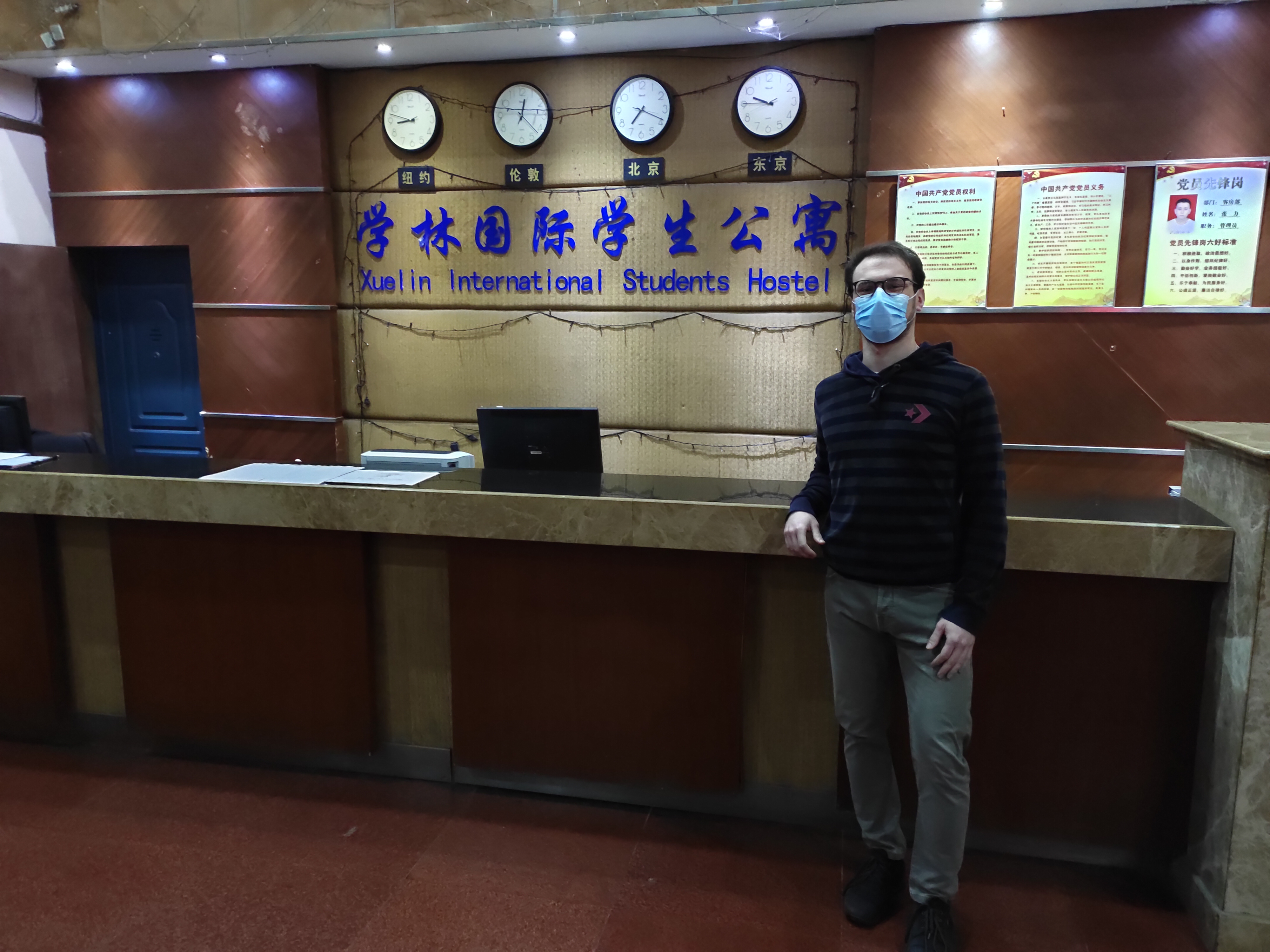
Dario at the Xuelin International Students Hostel, situated in Campus A of Chongqing University
In addition, if there is anybody not feeling good, he’ll get in touch with the professors anyway, just for an advice, or asking for a permission to leave the campus and go seeing a doctor – which is, again, against student’s own good because the procedure takes time for the approval and the student might feel worse in the meantime. Overall, I think the measures are effective but overlook the students’ status, with the result that they feel more “controlling” rather than “protecting”.
Q: How has this virus affected your life?
Dario: Getting to know better things that I can do in my room! I was used to having workouts regularly at the gym, and had to find out a way to keep in a good state of health whilst staying in the dorm. I also had to cancel travelling plans and all the friends that in Chongqing I am close with have returned home. I think of this period as a studying or catching up with movies or tv series one, to find time for things that previously I wasn’t able to find for, like an online typing course. It is also a good opportunity to get in touch with friends I didn’t hear from for a long while, with calls or emails.
Q: Where did you and your classmates go for meals every day?
Dario: The canteen in front of the dormitory is still open and provides breakfast, lunch and dinner. Students can also cook on their own, but the groceries can only be shopped online and be delivered to one of the two gates (out of 5) that are still open. Services like Halal food or fruit orders have started, trying to meet students’ demands. I wish there was at least a shop open within the campus, online shopping is not convenient if you’re short on just few things. Nonetheless the essential service is either provided or allowed, it just got harder to have a wide variety of meal options or to buy groceries.
Q: As a foreigner, is there anything you can do to help with the situation?
Dario: What first comes to my mind is focusing on maintaining a good state of health and if there are any symptoms that show up, see a doctor the soonest and avoid contact with others. It is also possible to donate money to Wuhan’s red cross, the bank account number can be looked up easily on the internet.
Also, keep positive and try to keep in touch with friends so time will pass faster!
Q: What’s your biggest wish now?
Dario: That the epidemic will finish the soonest, and the patients that are ill will quickly recover and find their families again. I also wish the epidemic will enlighten the people of China and improve the polity’s transparency in order to meet people’s needs. I hope to be going travelling soon, because I haven’t really had time for it after the first semester ended!

Marika Perna in China
Let’s thank Dario for his detailed sharing, and now we’ll hear from Marika.
Q: Hello Marika, please introduce yourself briefly to our readers.
Marika: Hello everyone and thanks for the interview. My name is Marika Perna and I am a student from Chongqing University majored in International Business, I have been living there for a year.
Q: World Health Organization (WHO) declares a Public Health Emergency of International Concern (PHEIC) over the global outbreak of novel Coronavirus. Did this affect your country and were any moves taken in response to it?
Marika: Yes, I am currently in Italy because of the Coronavirus. Since the end of January all direct flights from Italy to China have been blocked and due to force majeure I have been in Italy for more than a month now waiting for new notice from the government, both Italian and Chinese.
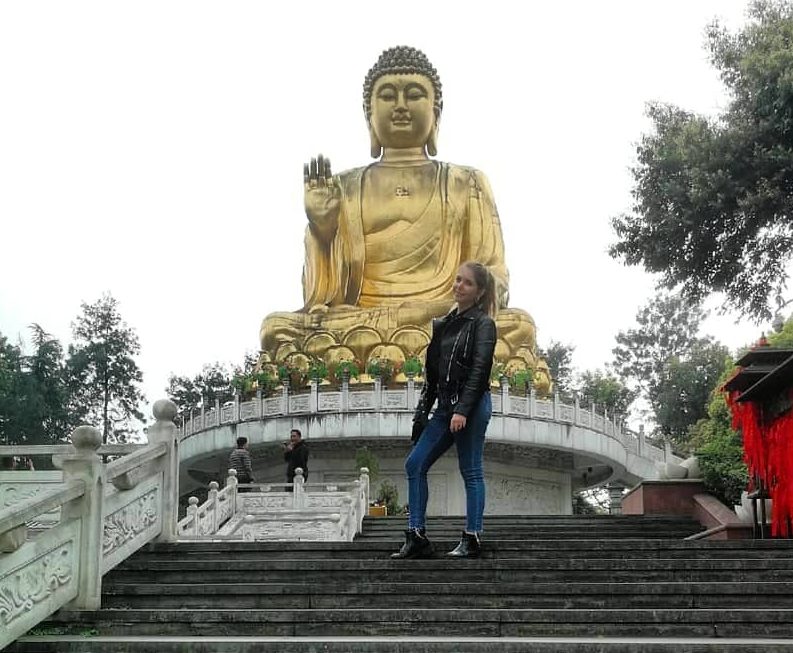
Q: As a foreigner, is there anything you can do to help with the situation?
Marika: I consider China my second home, as soon as I heard the news of the Coronavirus my heart aches and I immediately felt close to the Chinese people as if I were one of them. Unfortunately, the only thing I could do, in my own small way, was to participate in a fundraiser to help purchase paramedical material and send it to hospitals in Wuhan, China, through the World Chilli Alliance, an international cultural organization based in Chongqing. It was the least I could do for a nation that always welcomed me with open arms.
Q: What are you going to do right after you go back to China?
Marika: As soon as I go back to China I will definitely resume my studies, resume my habits and embrace all my friends in Chongqing. I hope to be back as soon as possible. Hello everybody.
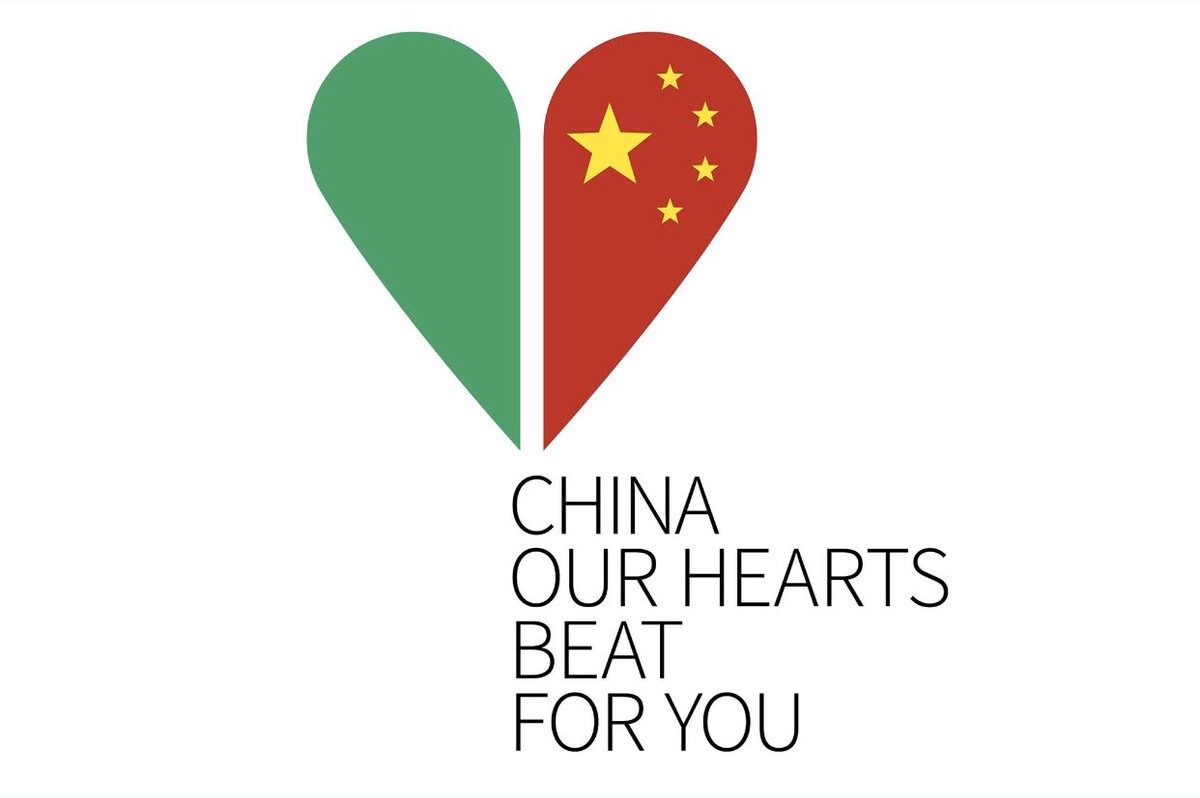
The logo of the initiative launched in Rome
In the meantime, on 21st February in Italy, an online petition called “ China, our hearts beat for you” was launched lead by Alberto Bradanini, Former Ambassador of Italy to China, Plinio Innocenzi, Full Professor of the Department of Chemistry and Pharmacy of the University of Sassari and former Scientific Attaché at the Embassy of Italy in Beijing, Paolo Giulierini, Director of National Archaeological Museum of Naples and Marco Maggiora, Director of the Joint Laboratory Institute of High Energy Physics – National Institute of Nuclear Physic, to express strong support for China and their efforts to promote bilateral cooperation in difficult times. The Director of our Institute, also the Italian dean of Confucius Institute in Pisa, Alberto Di Minin actively participated the activity, showing his full support to Chinese friends.
Finally, we want to thank all the medical staff who have been working on the front-line since the outbreak, and thank all of you who read this article for your long lasting support! Let’s wish the day when work and life back on track come soon.
Stay strong, Chongqing! Stay strong, Wuhan! Stay strong, China!




